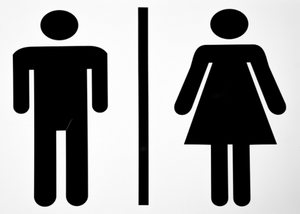No Gender Discrimination: Urinary Incontinence Affects Both Men & Women
February 05, 2021

Aside from frustrating, embarrassing, and aggravating, common is an accurate word to describe urinary incontinence. According to The Urology Care Foundation: “A quarter to a third of men and women in the U.S. suffer from urinary incontinence. That means millions of Americans. About 33 million have overactive bladder (also known as OAB) representing symptoms of urgency, frequency and with or without urge incontinence.”
These numbers, however, may be low. Because this issue can be embarrassing, many who suffer never share their concerns with their physicians. At Liquaguard®, we encourage all of our clients who are impacted to visit their doctors.
Quite often, incontinence is a symptom of something else. Your doctor needs to be aware of any issues you may have to gain an understanding of your overall health and accurately diagnose problems.
As you would likely expect, the causes of incontinence suffered by women and men often differ. Consider this information.
Urinary Incontinence in Woman
So many women face this daily. And, the causes are incredibly varied. Consider three of the more common reasons why many women suffer.
-
Menopause: The drop in estrogen in women during menopause may increase the likelihood of this condition. That said, taking estrogen is not a successful treatment for incontinence.
-
Vaginal and Urinary Tract Infections: A woman diagnosed with either of these may experience incontinence. The good news is that it is usually a temporary condition that resolves along with the illness.
Urinary Incontinence in Men
Men are impacted by incontinence too. While some of the causes are different than those that affect women, they are no less concerning. These can include, but are not limited to:
-
Surgery: Men who have had their prostate gland removed may suffer from urinary stress incontinence. According to Michigan Medicine (University of Michigan), “If there has been damage to the nerves or the sphincter, the lower part of the bladder may not have enough support. Keeping urine in the bladder is then up to the sphincter alone.”
-
Blockages: In men, if the urethra is blocked incontinence may result. Causes of the blockage can include a narrow urethra or an enlarged prostate.
Shared Causes of Incontinence
While some factors are gender-related, others exist that affect both men and women. These include:
- Obesity
- Smoking
- Disease (Diabetes and Parkinsons)
- Aging
- Dementia
Without a doubt, it is important to identify the root cause of incontinence and follow your physician’s advice regarding controlling this condition and taking care of yourself.
Management is Possible
There are several ways to manage incontinence. Modifying your diet, training your bladder, and strengthening your pelvic muscles are a few non-invasive steps to take. That said, those suffering should visit their physician and share their symptoms before adopting lifestyle changes. Understanding the cause of the incontinence helps guide the steps towards relief.
In the meantime, there are many products available to help make the lives of those who suffer (and those who love or care for them) a little bit easier. Consider waterproof mattress pads, throw blankets, and car seat covers to help protect your property and the dignity of those you love. You would be amazed at the peace of mind products like these can provide.
INCONTINENCE CAN BE FRUSTRATING AND EMBARRASSING. AT LIQUAGUARD® WE RECOGNIZE HOW DIFFICULT IT CAN BE TO MANAGE, BOTH PHYSICALLY AND EMOTIONALLY. WE ARE PROUD TO SUPPLY A BROAD RANGE OF PRODUCTS TO MAKE LIVING WITH INCONTINENCE A LITTLE BIT EASIER.
VISIT OUR WEBSITE TO SEE OUR COMPLETE INVENTORY. AND, CALL US WITH QUESTIONS. WE LOOK FORWARD TO HELPING YOU FIND THE BEST PRODUCTS FOR YOUR NEEDS. WE CAN HELP IMPROVE YOUR QUALITY OF LIFE.
Share:


